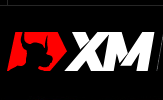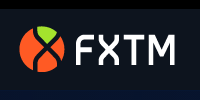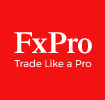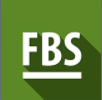ForexPick is a multinational guide consist of genuine reviews of brokers and a variety of educational materials to help your trading journey. The writers of ForexPick has 10+ years of experience in financial market trading Forex, Stocks, Bonds, Indices and Cryptocurrencies for living. Throughout our contents, we would like to offer you useful knowledge and information to enhance your life standard!
Our Methodology to Pick Brokers
Assets
- Asset Classes: There majorly six kinds of asset classes that you can trade. Forex, CFDs on Futures, Precious Metals, Commodities, Indices and Stocks. We take consideration in the number of asset classes that the broker offers to traders to direct you to the correct brokers.
- Trading Instruments: In each category of asset classes, the financial instruments vary as well. Some broker may only offer significant forex pairs like EURUSD, GBPUSD, and USDJYP while others also provide minor and exotic pairs. We clarified the number of pairs of each asset classes that a broker offers to make sure there are enough choices that you seek.
Spread & Commission
- Spread and Commission: These are the most vital thing to consider when you are choosing a broker. Since the hidden or high fees could potentially eat up all the profits that we have earned, we double-check this factor over and over so that the brokers do not have any hidden fee or levy a harsh cost.
- Trading Fee: Most of the broker charges no trading fee but the spread. It means the cost is already levied on the spread so that brokers can generate revenue. Yet, few specific account types charge a trading fee per LOT you have traded. We ensure that we have informed you correctly to prevent any unnoticed fees.
Leverage & Margin
- Leverage and Margin: Each broker offers a various extent of margin and leverage. It is a short-term credit that is provided by the brokers. It varies on the Account Type you have opened and Legal Entity of the broker.
- Risk of Leverage: We recognise the power of leverage in terms of trading, empowering traders to maximise their profit. However, leverage is like a double-edged sword. It potentially enables you to gain more profit and also possibly lead to losing all the fund (Stop-Out). Remember, 73% of Forex and CFD traders loss gets all their fund liquified.
Deposits & Withdrawals.
- Means of Deposit & Withdrawl: There are several ways to deposit and withdrawal your fund to/from a broker. Most of them offer E-wallets like Neteller and Skrill, Credit/Debit card like Visa/Master and Bank Wire Transfer. Some of them also support Crypto and Local Bank Transfer.
- Speed of Transaction: We have tested our fund with each broker to observe the speed of transactions. E-wallets usually took 10 to 20 minutes, and it can take up to 24 hours. For Bank Wire Transfer it takes typically 24 to 48 hours to complete the transfer.
Accounts
- Account Types: Each broker has different kinds of account type that it offers. Each account type has different Minimum Deposit, Leverage, Spread and Financial Instruments. In each brokers’ review, we mention all these elements in the form of a table to ensure it is easy to understand. It is helping traders to discover which account type is suitable.
- Account Opening: The process of opening account for most brokers are user-friendly and 100% digital. Yet, the method may vary among them. We have written step by step manual to help you with opening an account.
Trading platform
- Trading Platforms: MetaTrader4 and Metatrader5 are the industry-standard trading platform that millions of trader use to trade a wide range of financial instruments. Some of the brokers also offer cTrader as an option as well.
- In-house Developed: Every broker offers MT4 and MT5 by default, and some of them also provide in-house developed trading platforms that are optimised for their system.
- Functionality: In-depth analysis in terms of functionality and difference among those trading platforms.
Analytics and Educations
- Analytics: Analytics like Up-to-date News, Economic Calendar, Trading ideas and more useful functions are implemented in every brokerage to help traders to analyse and study the market.
- Education: Brokers offer educational materials such as E-books, Glossary, Webinars and Videos for traders from basic to advanced level.
Customer Support
- Language: Brokers for Forex and CFDs usually has clients from 100+ different countries. It is crucial to make sure that the Customer Service team can respond to questions from people worldwide.
- Availability: Operating time of each broker may differ according to their location and legal entity. We take this into account whether the brokerage offers 24/5 or 24/7 services to ensure the availability for the traders.
- Relevance: Contacted each customer service team directly via live chat and email to ensure they are capable of providing relevant answers to the questions.
Regulations and Licensing
This section is the most critical part to consider in terms of choosing a broker. We feel obligated to ensure the broker is regulated and monitored by the legislative institutions.
Foreign exchange is a decentralised market with no central exchange or clearinghouse. Due to its nature, it tends to be less regulated than other financial markets.
But, there are governmental and independent supervisory bodies that act as a watchdog to comply with regulations. Their objective is to make sure it is fair and ethical to the customers.
Major regulatory requirements :
- Audit: Auditing assures the broker financial risk is adequate and no misappropriation of funds. Brokers must present periodical financial and capital adequacy statements.
- Client Conduct: Brokers can not make nonsensical and misleading claims to customers. Therefore, preventing clients from taking dangerous investment decisions.
- Leverage Limits: Guard clients against over-the-top risk levels. Firms may not be able to offer exceptionally high leverage depending on the legal entities.
- Minimum Capital: These constraints guarantee that clients can withdraw their fund even though the broker goes bankrupt.
- Reporting and Transparency: It ensures clients are fully notified about their account and risk of trading Forex and CFD products.
- Segregated accounts: It ensures the broker can not use any of the clients’ fund for any purpose. Regulations demand all the deposits be secured independently from the brokers’ bank accounts.
List of Regulators:
Australian Securities and Investments Commission (ASIC) Commodities and Futures Trading Commission (CFTC) Cyprus Securities and Exchange Commission (CySEC) Financial Conduct Authority (FCA) Financial Services Commission (FSC) International Financial Services Commission (IFSC) Malta Financial Services Authority (MFSA)
Legal Entities
Nationality
Direct
Australia
Visit
United States
Visit
Cyprus
Visit
United Kingdom
Visit
Mauritius
Visit
Belize
Visit
Malta
Visit
Accepted Countries
- Base on the legal entity of a broker, there are few countries that are restricted to register and/or trade Forex and CFDs.
- In our reviews of brokers, restricted countries are stated to clarify whether a trader can open an account to a specific brokerage.
Additional Functions
- Brokers tend to differentiate themselves to other companies to persuade traders to use their services.
- Thus, features like Copy Trading, Welcome Promotions and other special offers that broker prepared are also addressed.
Pros and Cons
- Considering all the factors above, we locate the Pros and Cons at the beginning of the review to provide an instant overview of the broker that has been analysed with full investigations.
Conclusion
- In conclusion, we specifically mention the advantages and disadvantages of a broker to provide the least biased reviews.
- Lastly, the summarization of fundamental research is organised to present the last verdict.



